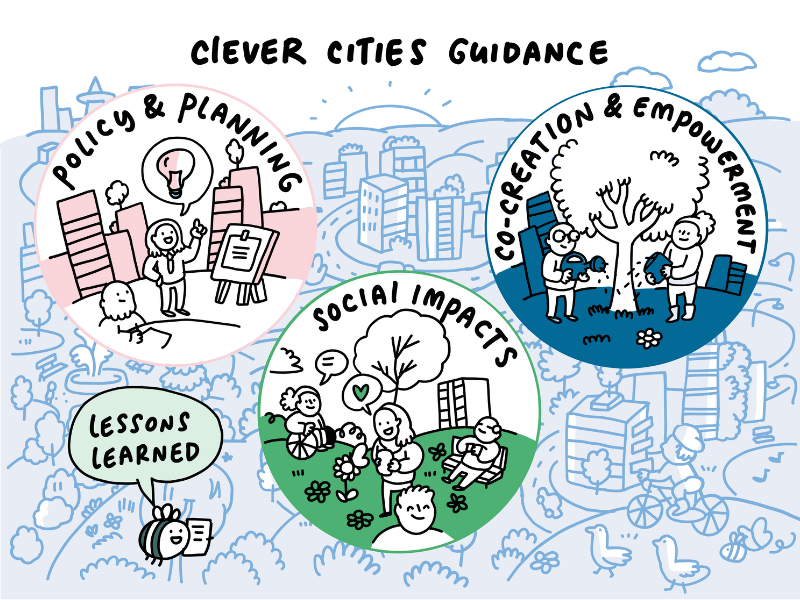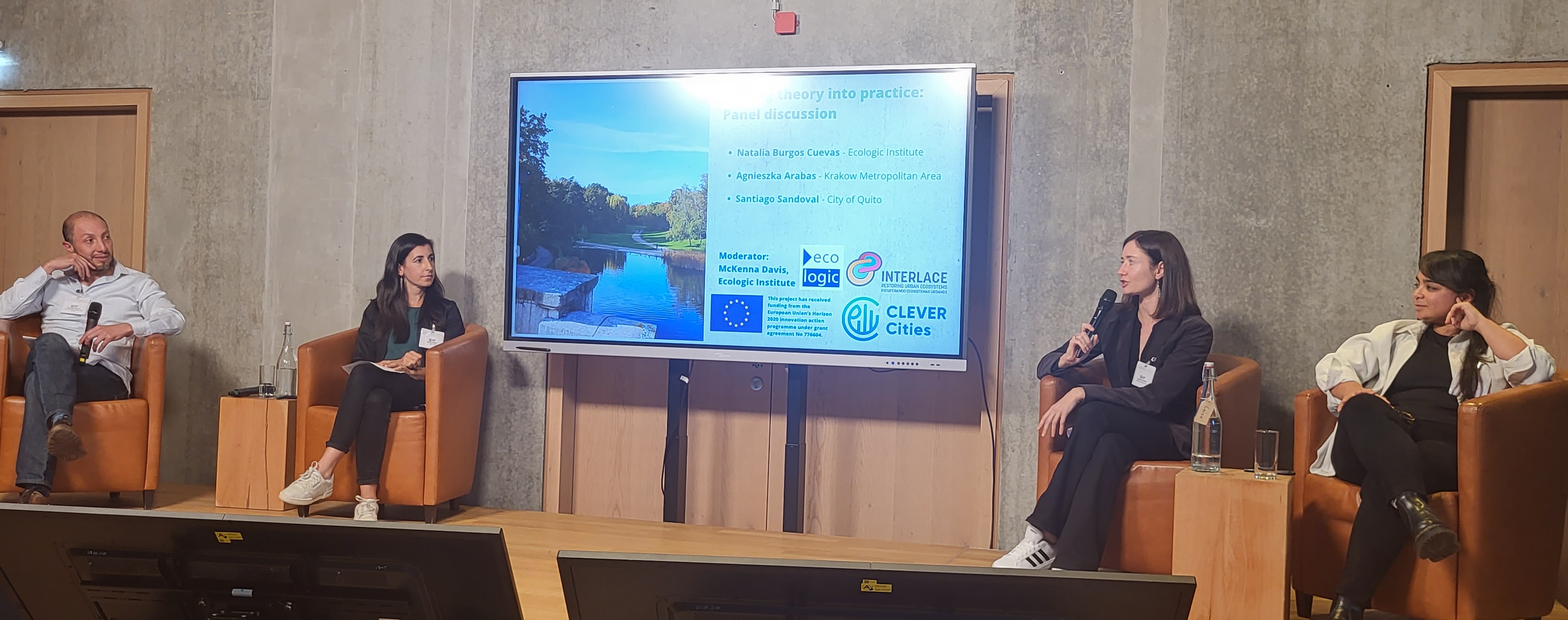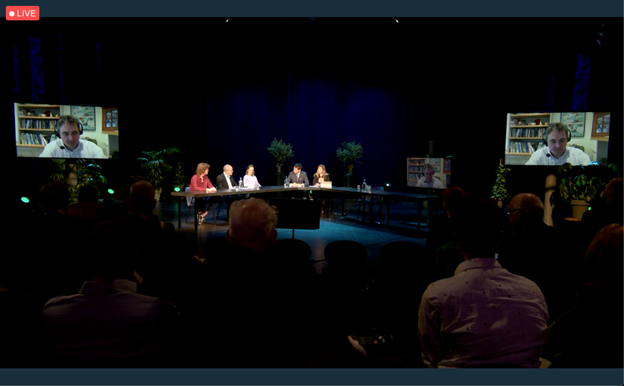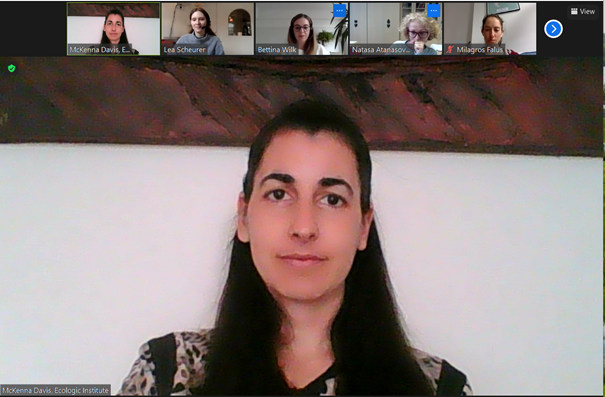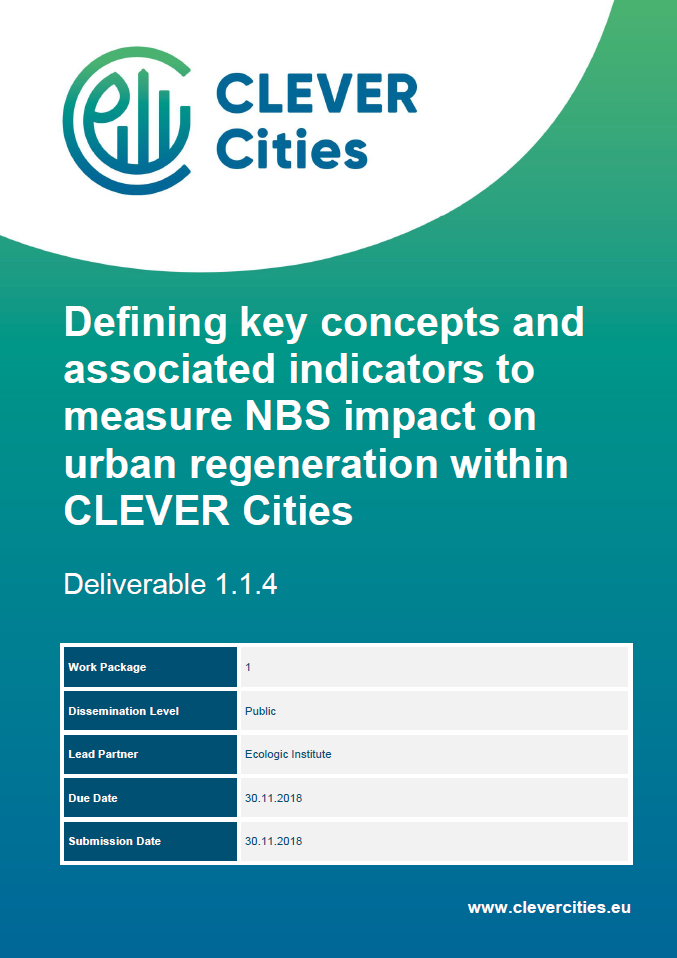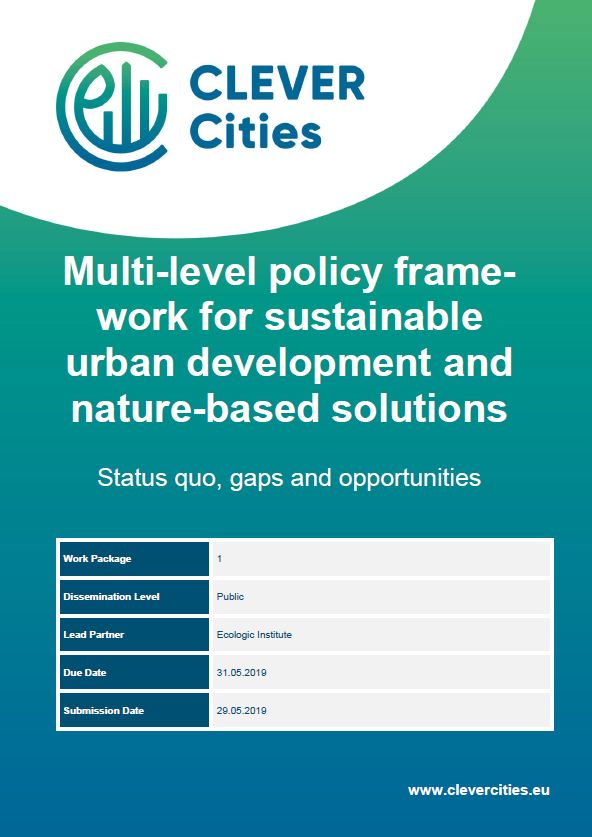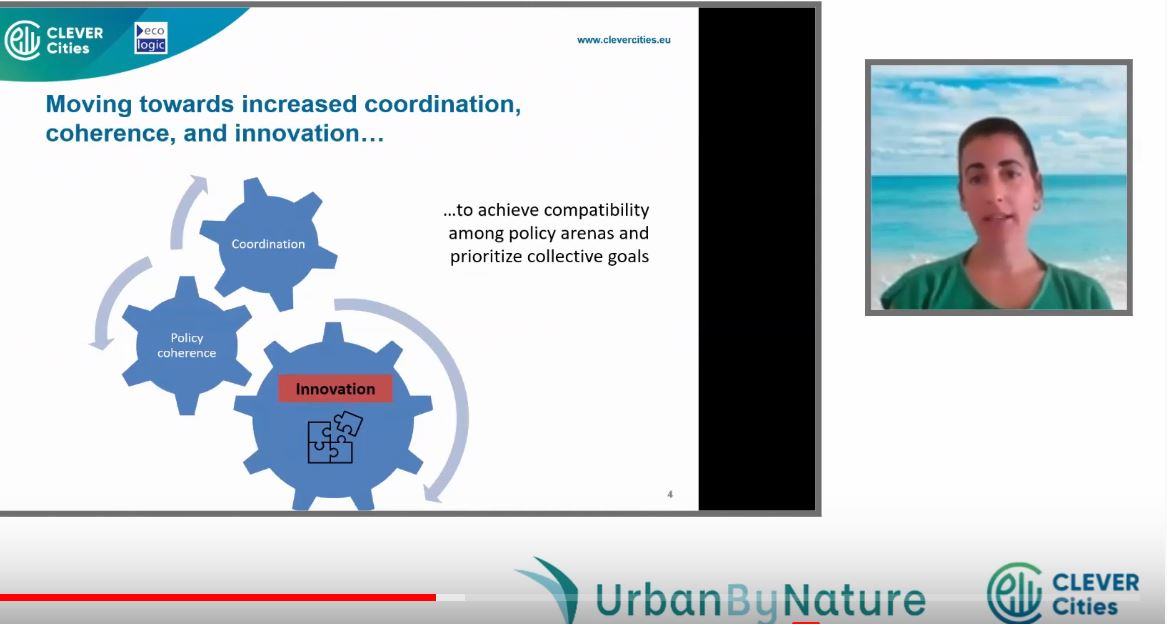
© CitiesWithNature
Mainstreaming Nature-based Solutions
Enhancing local policy coordination and coherence
- Presentation
- Date
-
- Location
- online
- Speech
The need to mainstream nature-based solutions (NBS) into urban governance and planning is increasingly advocated for by both governmental actors and the research community across different sectors. UrbanByNature (UbN) – a facilitated capacity-building programme promoting exchange among cities, researchers, SMEs and NGOs to link global NBS communities – recognizes this urgency. The programme is organizing a series of webinars to support NBS mainstreaming, using the different steps of the UbN methodology. On 4 July 2022, McKenna Davis from the Ecologic Institute spoke to the 2nd step of this methodology: EXPLORING existing urban greening policies, plans and regulations to identify gaps and understand local needs. Representing the CLEVER Cities project, McKenna Davis provided insights on how to ensure coherent and coordinated policymaking and align objectives across sectors and policies. She also highlighted relevant EU policies and initiatives supporting nature-based solutions to contextualise local action towards NBS mainstreaming.
During the webinar, practical experience from the South Eastern Europe region was also shared by Marija Vilhelm and Adrijana Sesic from the City of Banja Luka (Bosnia and Herzegovina). These speakers looked at how spatial development policy mapping and stakeholder coordination contributed to initiating urban forestry protection and forming the Green Belt of Banja Luka. During the webinar, participants had the opportunity to share their experiences and address questions to the webinar speakers.




